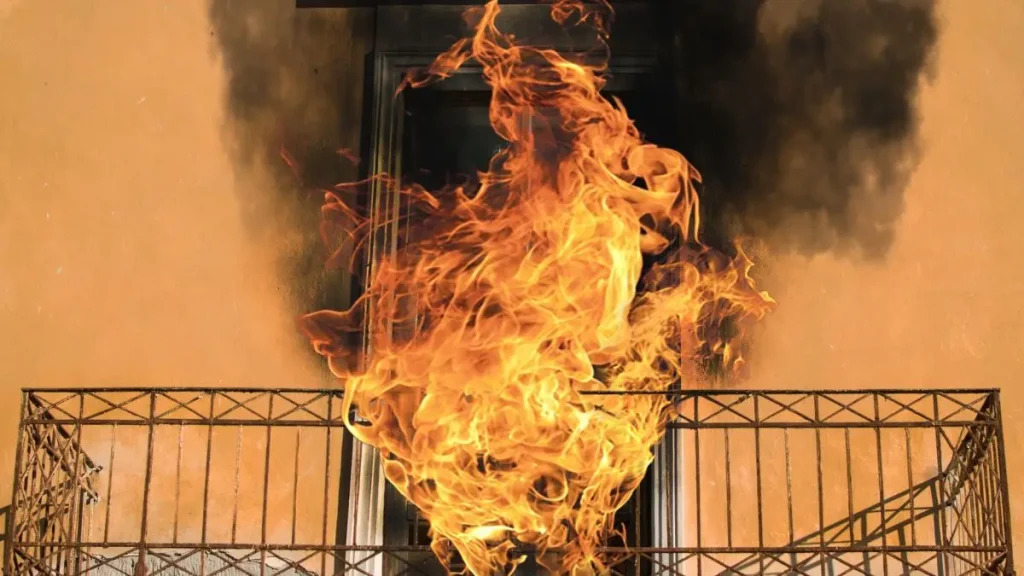Wisconsin House Fire Forces Family to Relocate, No Injuries Reported
I can’t imagine what it’s like to come home and find it nearly unlivable. That’s exactly what a family in Deerfield, Wisconsin is facing after a fire broke out in their garage Monday afternoon.
It started around 1:30 p.m. in the 200 block of Park View Road. By the time firefighters arrived—within ten minutes—the garage was already filled with flames and thick smoke. The good news? The fire didn’t spread inside the home. But the bad news is just as serious: the structure isn’t safe to live in anymore.
Fire Chief Josh Sewell believes the fire most likely started in the garage, though the investigation is still ongoing. He told reporters, “We’re almost 100% sure it started there.” Thankfully, no one was home at the time, and no injuries were reported.
Even so, it’s a hard blow. The family lost the stability of their home in an instant. As Chief Sewell said, “We did our job making sure the house didn’t get fully involved… and they were able to get some of their belongings out.”
What Happened in Those Crucial First Minutes?
I’ve covered a lot of house fire incidents over the years, but what happened in Deerfield stands out for one reason: how fast the firefighters moved. If you’ve ever wondered what kind of response you’d get in an emergency like this—here’s a glimpse.
According to WMTV, the Deerfield Volunteer Fire Department got the call around 1:30 p.m., and crews were on the scene within 10 minutes. That’s not just quick—it’s lifesaving.
By the time they arrived, the garage was already billowing with smoke and flames. But because of that rapid response, the fire didn’t rip through the rest of the house. “We did our job making sure the house didn’t get fully involved,” said Fire Chief Josh Sewell. That kind of containment can mean the difference between repairable damage and total loss.
And if you’re reading this wondering, “Would my local department respond this quickly?” — it’s a good time to check your area’s fire coverage and emergency numbers. Seconds really do matter.
A similar quick response in Mason City helped firefighters contain a blaze before it could cause catastrophic damage—proof that preparedness pays off.
What Caused the Fire?

Let’s talk about what probably crossed your mind immediately: How did this happen? And more importantly — could it happen to you?
Right now, the cause is still under investigation. But Fire Chief Sewell is nearly certain the fire started in the garage. While that might not seem shocking, it’s a detail worth pausing on—because garage fires are more common (and dangerous) than most people realize.
I’ve seen cases where a single lithium-ion battery, a space heater, or even an extension cord left under stress triggered a full-blown blaze. Garages often become catch-all spaces for flammables, fuel, paint cans, and overloaded circuits—a perfect storm just waiting for a spark.
So if you’re a homeowner, here’s my quick suggestion: take a 15-minute walk through your garage today. Look at your plugs. Your storage shelves. Your power tools. You might find one small risk that could prevent a massive loss.
Earlier this year, a tragic two-alarm fire at a care home in Pierce County claimed the life of a 76-year-old, further underscoring how quickly fire can turn deadly—even in supposedly safe environments.
The Human Side: When a House Becomes Unlivable
I won’t lie—this part hits harder than most people realize.
Imagine being that family. You weren’t even home when the fire broke out. You’re going about your day, and suddenly, you get a call that your house is filled with smoke, your garage is scorched, and even though the flames didn’t touch your living room, you can’t go back inside.
That’s the reality for the Deerfield family. Fire Chief Sewell, who knows them personally, said it best: “I know the family, so trying to keep them calm and let them know that everything is going to be alright.”
They were able to retrieve some belongings, which is something—but not everything. And this isn’t just about bricks and furniture. It’s about feeling safe. It’s about stability being pulled out from under your feet.
And if you’ve ever faced a similar loss—or know someone who has—you know that the emotional damage can linger longer than the smoke.
Have you or someone you know ever experienced a house fire? Share your story or thoughts in the comments—your insights could help others going through similar challenges.
Red Cross Steps In: What Happens When You Lose Your Home?
In moments like this, I’m always reminded that community response isn’t just fire trucks and hoses—it’s also the people who help afterward.
The American Red Cross is now helping this displaced family, providing temporary shelter and support. They’ve stepped into scenes like this thousands of times. Whether it’s a hotel stay, financial assistance, or basic supplies—they help families get through those first chaotic days.
If you’ve never looked into it, the Red Cross has local teams across Wisconsin, trained specifically for house fire situations. They often arrive on scene just hours after the flames are out.
So here’s my advice: take 5 minutes to bookmark your local Red Cross chapter. Because if, God forbid, you’re ever in this family’s shoes, knowing where to turn can make a world of difference.
Not all families are as lucky—just recently, four lives were lost in a West Jordan house fire, where arson is now suspected, reminding us of how devastating these events can truly be.
Could This Happen to You? Fire Prevention Starts in the Garage

Let me ask you this—when was the last time you checked your smoke detector in the garage?
Wait, do you even have one in there?
Most people don’t, and that’s a problem. Garage fires are sneaky. They don’t get noticed until they’re out of control. And by then, the damage is already done.
Here’s what I recommend (based on countless fire reports I’ve read over the years and what safety experts suggest):
- Don’t overload outlets—especially with tools or chargers
- Store gasoline, paint, and other flammables in approved containers, off the ground
- Install a heat detector, not just a smoke alarm, in the garage
- Keep a fire extinguisher near the entrance—not buried behind your car
According to the National Fire Protection Association (NFPA), garage fires cause over 6,600 house fires annually in the U.S. And trust me, every single homeowner thinks “It won’t happen to me”… until it does.
If you take anything from this story, let it be this: A five-minute safety check today can save you from a life-altering call tomorrow.
How You Can Help—or Get Help Yourself?
One thing I’ve learned writing stories like these? When tragedy strikes, communities rise.
Right now, there’s no public fundraiser or donation link available for the Deerfield family—but that could change in the coming days. Sometimes neighbors set up GoFundMe pages, and sometimes, the family prefers privacy. I’ll keep an eye out, and you should too—especially on WhatsApp groups or local news pages.
In the meantime, here’s how you can take action:
- If you know someone displaced by a fire, contact the Red Cross Wisconsin immediately. They offer shelter, supplies, and emotional support.
- If you’re worried about your own home, ask your local fire department about free fire safety checks—many departments offer them.
- If you want to volunteer, the Red Cross always needs disaster response team members—even non-responders can help organize supplies or assist families post-crisis.
This story may have started with a single garage fire—but it should end with something more powerful: a community better prepared to protect each other.
Explore more real stories and safety insights on Build Like New’s Home Incidents section—because staying informed is the first step toward staying safe.
Disclaimer: The information in this article is based on official reports and news sources available at the time of writing. Investigation details may evolve as authorities release updates. For the most accurate and current information, refer to local fire department or law enforcement announcements.


